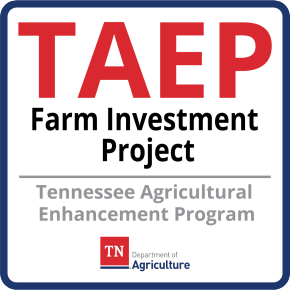Half Hill Farm is the first USDA certified organic farm in Tennessee to grow legal hemp.
The state legalized hemp last year despite decades of federal prohibition under the Controlled Substance Act. Growing hemp requires a background check and permit from the Tennessee Department of Agriculture.
Half Hill Farm grows several hundred plants in a pilot partnership with a co-op of farms under Tennessee Hemp Farm. Using various farm methods, participating farms hope to learn how much seed and fiber production they can expect from a plant not grown legally in the United States since the 1950s.
"My guess is hemp will grow just fine here in Cannon County," said Half Hill Farm's Christian Grantham. "The exciting part for us is what can be done with it."
While industrial hemp contains little to none of the psychoactive ingredient THC, hemp seeds produce the highest omega 3 and omega 6 fatty acids of any grain. Milled seed is an excellent source of oil and plant protein, and hemp is one of the world's most renewable sources of industrial fiber.
"It won't be long before you start seeing several Tennessee products made with hemp grown and processed right here," Grantham said. "As part of our farm's mission, we can't wait to share the health benefits of hemp through value added products."
In the mid 1800s, Tennessee farms reported growing over 2,200 tons of hemp using it to make rope and industrial canvas used in boat sails and to bag cotton harvests. According to state records, production fell with competition from other states.
Growing commercial hemp is still illegal under federal law. Permitted farms in Tennessee work closely with state and federal authorities under new farm rules for states that legalize hemp or recreational & medical marijuana.
Under state law, farms growing hemp can sell hemp fiber or viable hemp seed to a manufacturer and value added products direct to consumers. The first hemp crops in Tennessee will harvest in late September.
Learn more:









